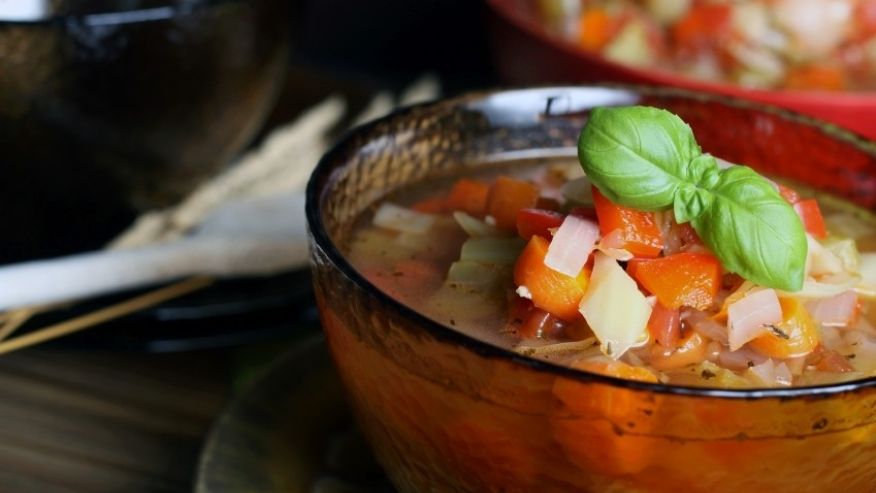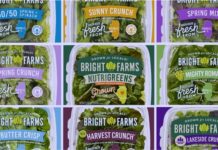Whether you’re trying to lose weight, training for an endurance event or just want to live a healthy lifestyle, tracking what you eat is a priority.
It’s true that many foods can help you achieve your goals, but there are some so-called “healthy” foods can have extra ingredients and sneaky calories, fat and sodium which can easily throw off your healthy eating plans.
Here, are eight foods that aren’t as healthy as you might think.
1. Soups and bisques
As the weather gets colder, there’s no better feeling than to come home to a bowl of hot soup. Broth-based soups with lots of vegetables will fill you up but many soups are also filled with sodium. “You could easily get well over half your day’s sodium in a serving,” said Karen Ansel, a registered dietitian/nutritionist in Long Island, New York and co-author of “The Calendar Diet: A Month by Month Guide to Losing Weight While Living Your Life.”
Bisques can be a good source of protein and calcium, but the calories, sodium and fat can add up quickly if there’s too much milk and cheese. If you’re making a bisque at home, try 1 or 2 percent instead of whole milk and use the smallest amount of cheese that will preserve the taste.
With any packaged soup, be sure to read the label to make sure you’re not overdoing your serving size.
2. Veggie burgers
Think your veggie burger is a better choice than the beef burger your dinner date ordered? Think again.
“To make it taste good, a lot of restaurants will deep fry or fry it in so much oil that it really negates any of the healthy benefits,” Ansel said.
Ask your waiter how the veggie burger is prepared or request that it be cooked on a flat top with a light spray of oil or minimal butter. If you buy frozen veggie burgers, compare labels and look for ones with more whole-food ingredients like beans and quinoa for added nutrition and fill-you-up-fiber.
3. Wraps
Reaching for a wrap at your favorite lunch spot just because it’s thinner than a roll doesn’t mean it’s any better. Many wraps have sugar, added sweeteners, preservatives, anti-molding agents and shelf stabilizers, said Miranda Hammer, a registered dietitian in New York City and founder of the blog the CrunchyRadish.com. Some spinach wraps even use food coloring to give it that green hue.
Read labels and look for “100 percent whole grain” or those that contain sprouted grains, for extra fiber and nutrition. To cut down on carbs and calories, trim the wrap or look for wraps that are taco-size.
4. Coconut oil
Coconut oil is touted as a superfood and one of the reasons is because of its medium chain fatty acids. The body uses medium chain fatty acids quickly for energy and they’re easier to digest than other types of fatty acids, Hammer said. Plus, coconut oil can be used with high-temperature cooking techniques.
However, even though coconut oil is a healthy fat, a tablespoon has 117 calories and 14 grams of fat. Use it with every meal and you can pack on the pounds quickly.
Instead of cutting it out of your diet altogether, be mindful of how much you’re using. A half of a tablespoon should be enough for large batches of roasted vegetables, for example, while a teaspoon is enough to make an omelet.
5. Potatoes
Potatoes are low in calories, high in fiber and a good source of potassium, vitamin C and vitamin B6. Varieties like sweet potatoes have a ton of vitamin A and purple ones contain extra phytochemicals. Regardless of the spud you choose, eat a big portion or load it with butter, cheese, sour cream or bacon and you have a calorie bomb.
Instead, bake, roast or mash potatoes, watch your serving size and swap toppings like Greek yogurt for sour cream.
6. Yogurt
Although yogurt is known as a healthy go-to snack, it might not be the healthiest choice.
In fact, a recent study in the Journal of the Academy of Nutrition and Dietetics found no link between eating yogurt regularly and better overall health.
Nevertheless, yogurt is a great source of protein and calcium as it contains probiotics and some are even gluten-free. Yet some brands add preservatives and modified corn starch to thicken it or give non-dairy varieties comparable texture and appearance. Plus, many brands add cane sugar, high fructose corn syrup and fruit purees, making yogurt more like a dessert.
Instead, opt for plain yogurt and add your own fresh or frozen fruit, and a bit of honey, agave sweetener or maple syrup if it’s not sweet enough. And don’t only stick with non-fat varieties.
“A little bit of fat in your dairy is OK because it helps you absorb the fat-soluble vitamins and it allows you to feel fuller longer,” Hammer said.
If you’re relying on yogurt alone to get your fill of probiotics, look for other fermented foods that are a better source like kefir, kimchi and sauerkraut.
7. Marinara sauce
Jarred tomato sauce is an easy and versatile addition to any dish and it also has vitamins A, C and lycopene, an antioxidant. Since the tomatoes need to be cooked down, you can get a large amount of vegetables in one serving, Ansel said.
But those jars in the grocery store are filled with sodium and added sugar. Read labels and choose one that has no more than 500 milligrams per serving or make your own at home.
8. Cottage cheese
Cottage cheese— a great source of protein that can be used in smoothies or paired with fruit for breakfast—has 479 milligrams of sodium per cup of the non-fat variety
If you already eat clean, the sodium shouldn’t be a problem. But as an alternative, try ricotta, which has less sodium and is packed with whey protein, which is healthy but often hard to get in the diet, Ansel said.





